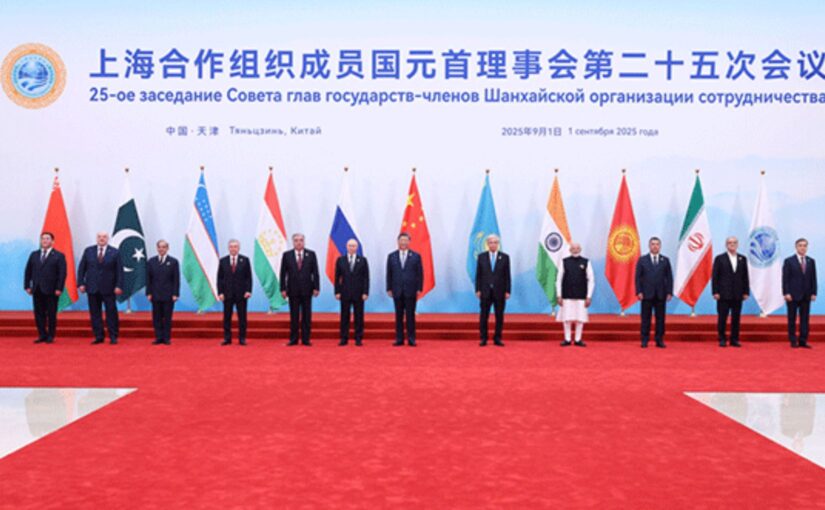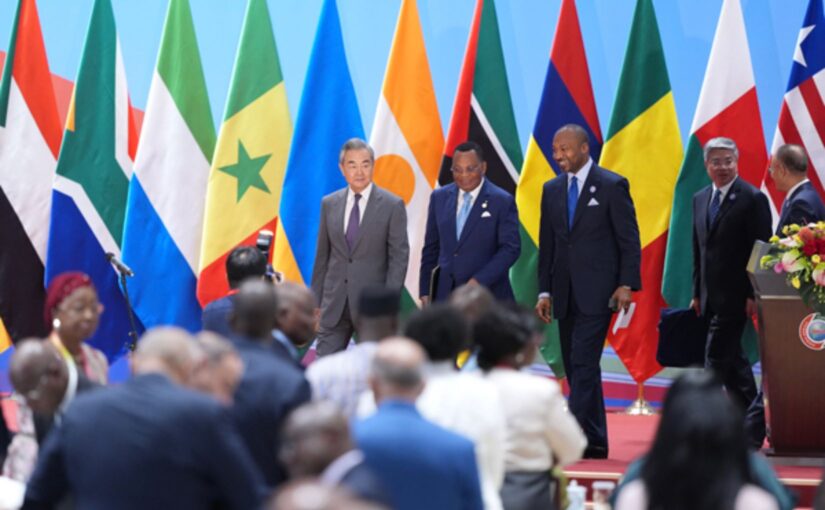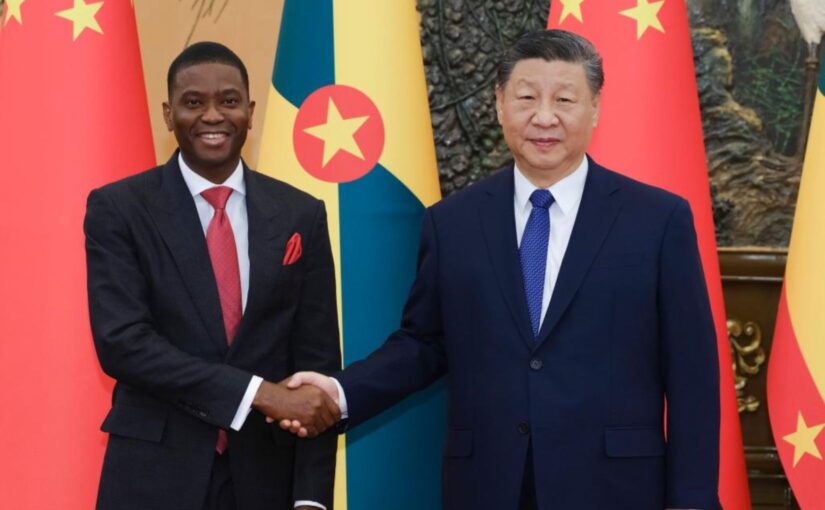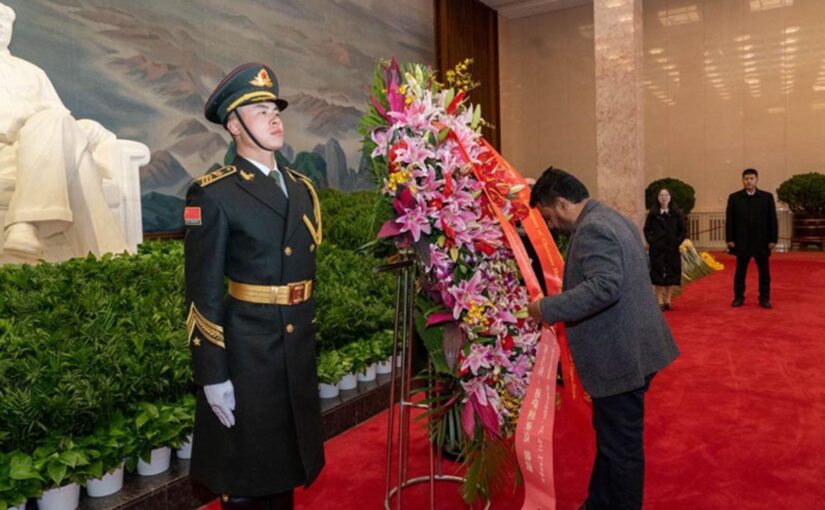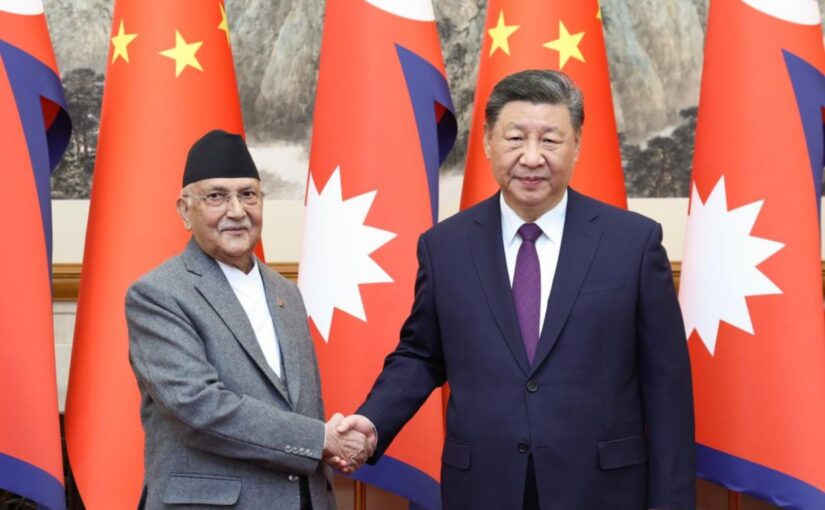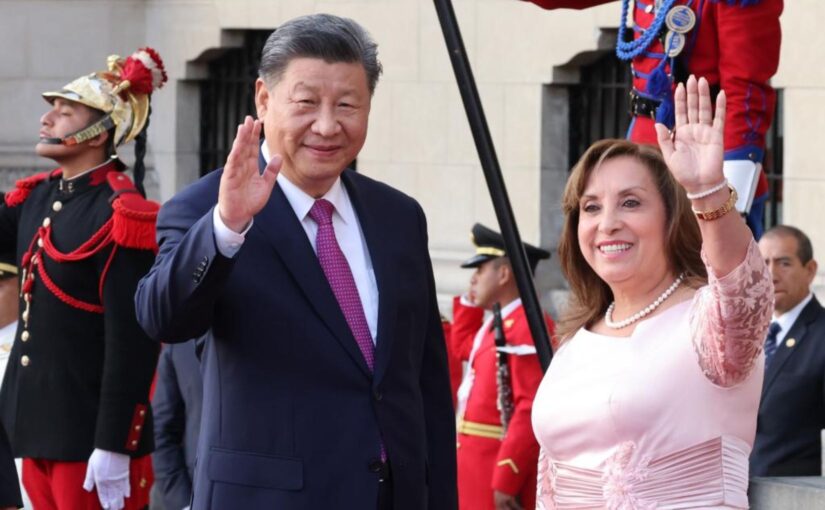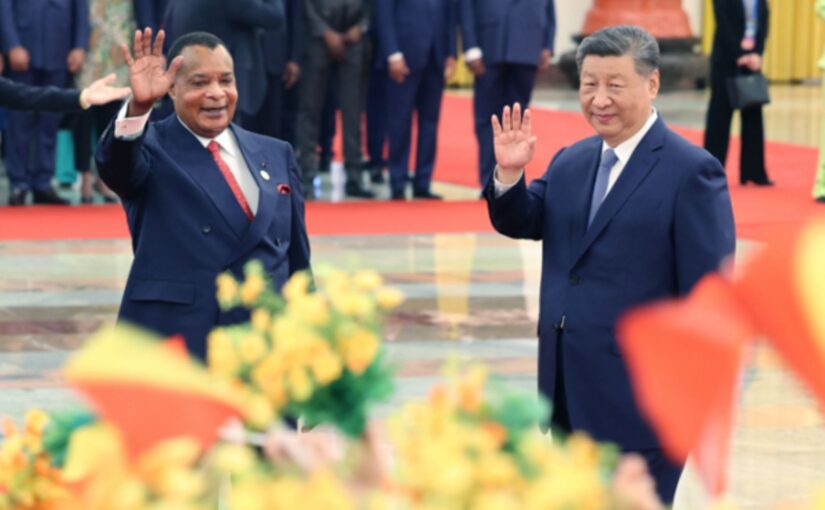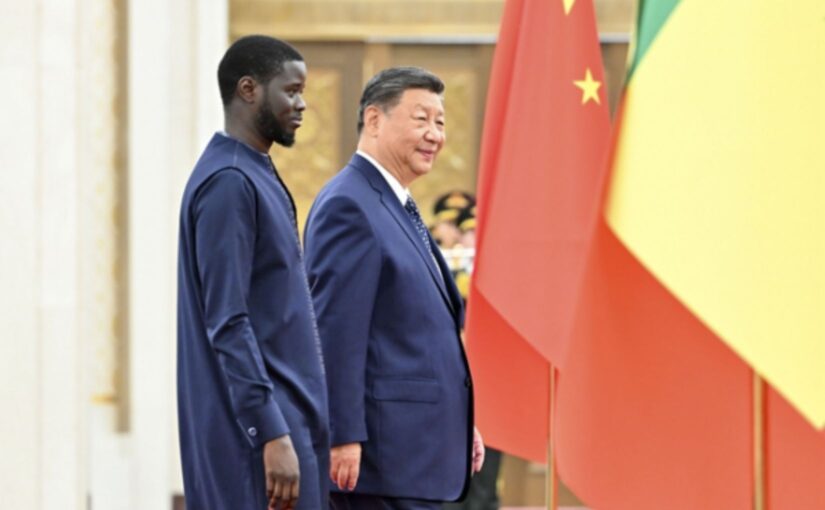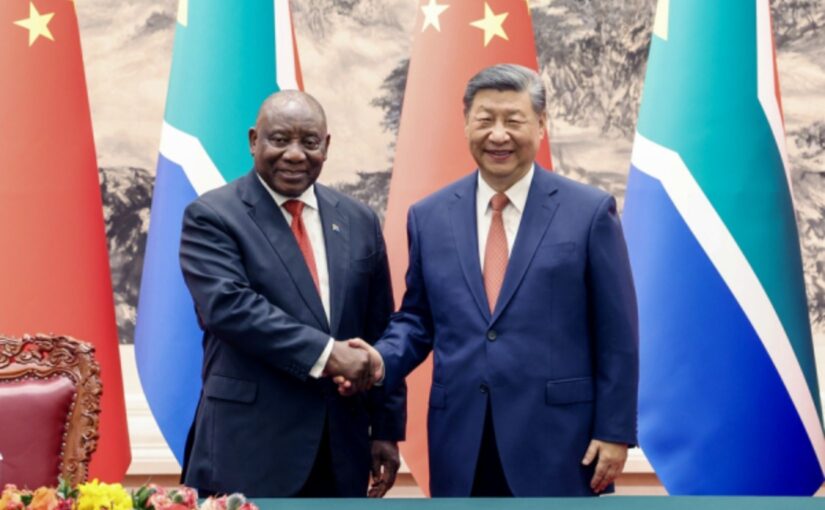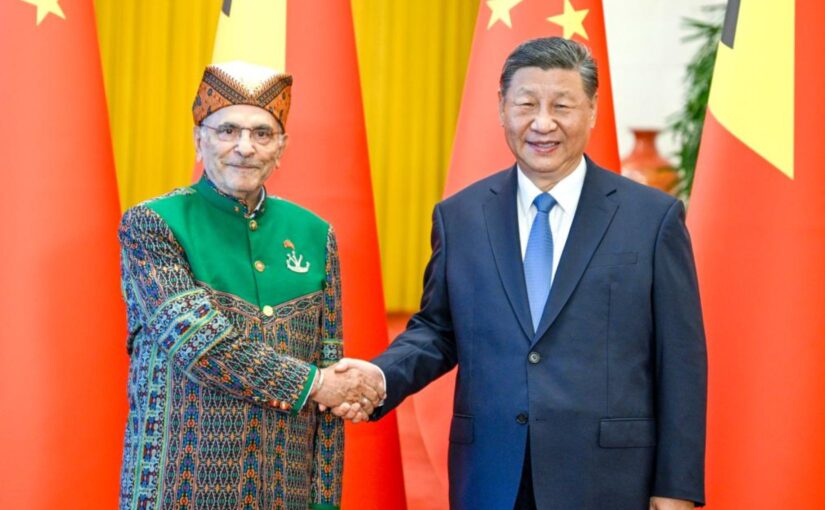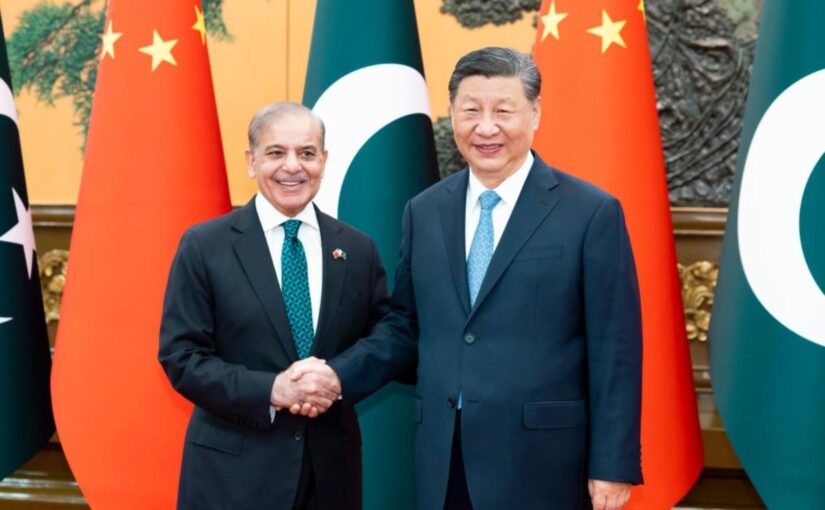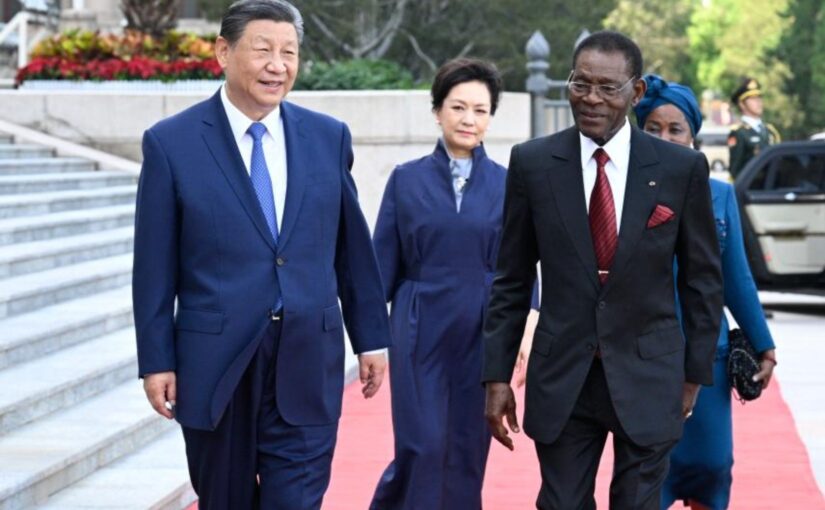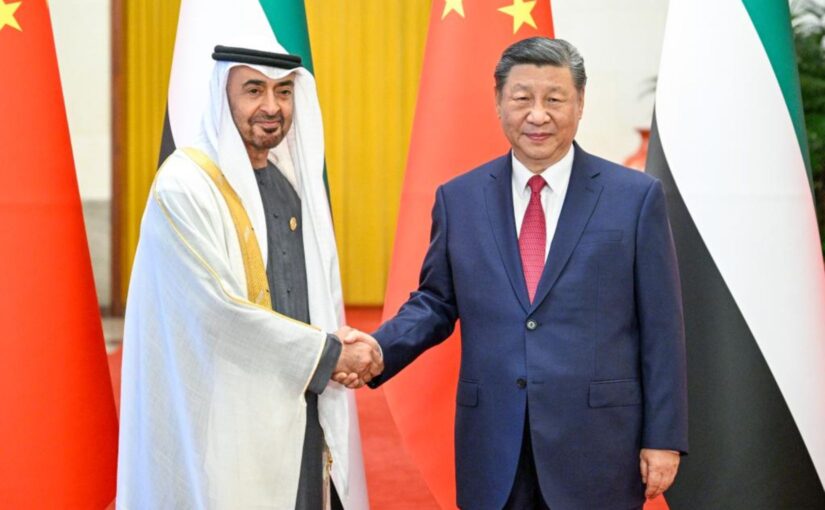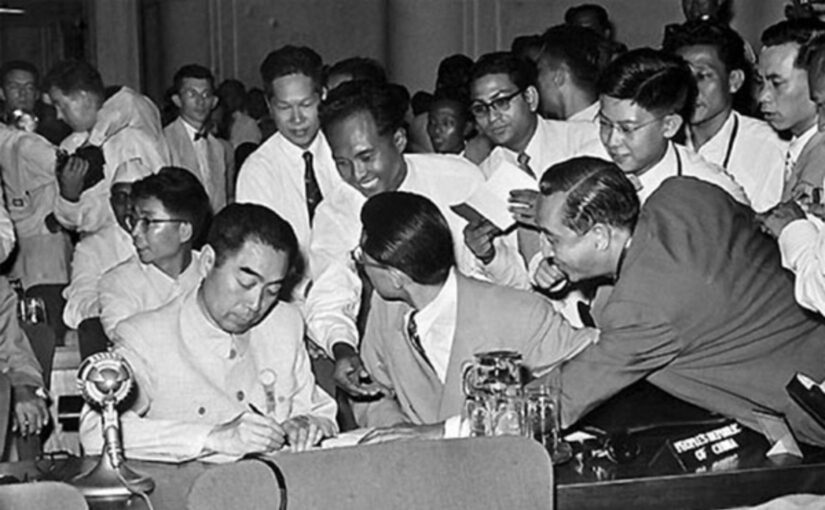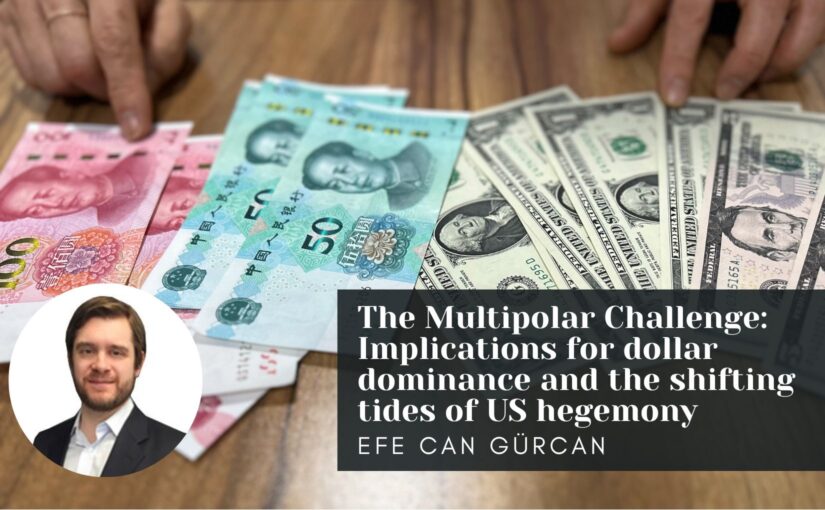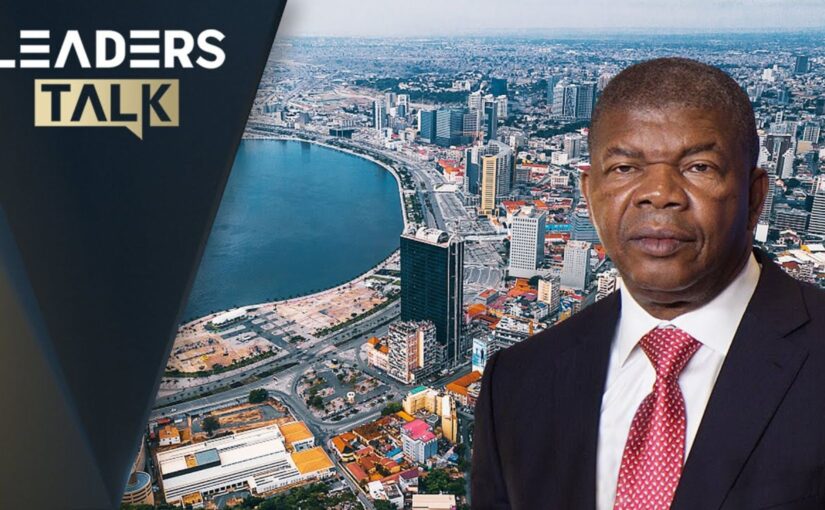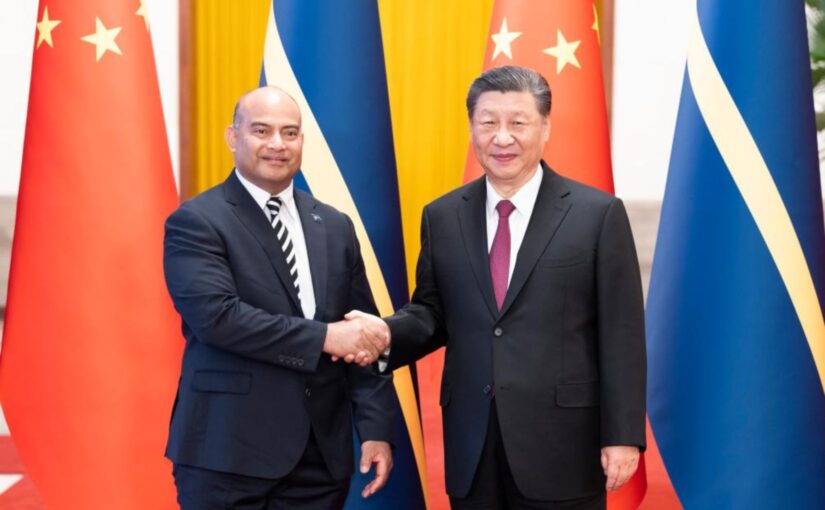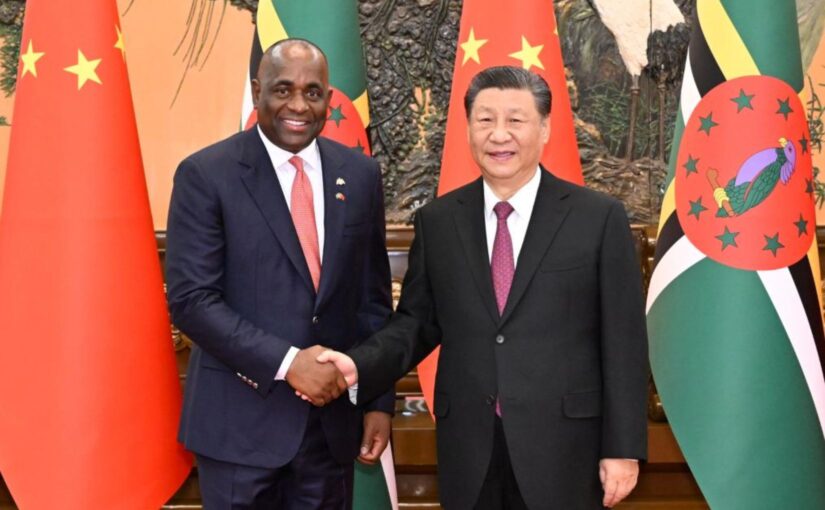Chinese President Xi Jinping held talks with President of the United Arab Emirates (UAE) Sheikh Mohamed bin Zayed Al Nahyan on May 30 and with King Hamad bin Isa Al Khalifa of Bahrain on May 31 respectively. The two Gulf heads of state were visiting China coinciding with the 10th conference of the China-Arab States Cooperation Forum, held in Beijing on May 30.
Meeting with Sheikh Mohamed, Xi noted that the UAE is an important comprehensive strategic partner of China. In recent years, China-UAE relations have maintained a sound momentum of development, setting a good example for China-Arab states relations in the new era.
This year marks the 40th anniversary of the establishment of diplomatic relations between China and the UAE, Xi said, adding that it is an important juncture for China-UAE relations to build on past achievements and forge ahead.
He added that China stands ready to work with the UAE to continuously promote high-quality Belt and Road cooperation, strengthen synergy of development strategies, and take the establishment of a high-level committee on China-UAE investment as an opportunity to push for more outcomes in bilateral cooperation.
Noting that at present the trend towards a multipolar world is unstoppable, Xi said multipolarisation in essence should mean mutual respect and peaceful coexistence among different civilisations, systems and paths.
Countries in the Middle East are an important component of the developing countries and an important force in the multipolarisation of the world and China supports countries in the region to continue to follow development paths suited to their national conditions, firmly follow the road of unity and strength, peace and reconciliation, resolve differences through communication and consultation, and hold their future and destiny in their own hands.
Mohamed said that he was very happy to once again visit China, his second hometown. The relations between Arab and Gulf countries and China boast a solid foundation. Deepening and developing relations with China conforms to the common aspiration and fundamental interests of the people of Arab and Gulf countries.
The two sides also exchanged views on the Palestinian-Israeli conflict. Xi stressed that the top priority is a comprehensive ceasefire and cessation of fighting to ease the humanitarian crisis, and the international community should unanimously support an early negotiated settlement of the Palestinian issue on the basis of the two-State solution.
The next day, the UAE head of state met with Chinese Premier Li Qiang.
Li said China is willing to expand bilateral trade and investment, strengthen cooperation in traditional areas, and explore cooperation in new fields, such as new energy, high technology and artificial intelligence.
China is also willing to improve coordination with the UAE in multilateral mechanisms, such as the United Nations and BRICS, and promote the building of a China-Arab community with a shared future. The UAE joined the BRICS cooperation mechanism on January 1 this year.
Mohamed said the UAE and China enjoy solid and promising relations. He added that the UAE adheres to the one-China principle and will work with China to enhance Belt and Road cooperation.
Also, on May 31, Xi Jinping met with King Hamad of Bahrain. The two leaders announced the establishment of a comprehensive strategic partnership between their two countries, citing it as a new milestone in bilateral relations.
Xi said that, as this year marks the 35th anniversary of the establishment of diplomatic ties between China and Bahrain, China is ready to work together to develop their comprehensive strategic partnership and to bring more benefits to the two peoples. He noted that China advocates mutual respect and peaceful coexistence among countries with different systems and civilisations and supports countries in the Middle East to enhance unity and cooperation, achieve peace and reconciliation, and promote development and revitalisation.
China is willing to work with regional countries, including Bahrain, to develop its relations with the Gulf Cooperation Council (GCC) countries further, host the second China-Arab States Summit successfully, and accelerate the building of a China-Arab states community with a shared future.
King Hamad said that China is a great country and Bahrain is deeply grateful that China has provided significant support for its national construction. Bahrain hopes to take the establishment of this comprehensive strategic partnership as an opportunity to align the development strategies of the two countries, strengthen practical cooperation in various fields, and achieve its own diversified development. As long as China develops well, other developing countries can do the same, and the process of global multipolarity can continue to advance. Bahrain is firm in its belief that China will realise the great rejuvenation of the Chinese nation and make greater contributions to world peace and prosperity.
The Bahraini King also briefed Xi on the recent 33rd Arab League Summit, which his country had hosted, focusing particularly on the Arab states’ position on the Palestinian question and the efforts they have made to push for an early end to the Gaza conflict. He expressed his appreciation and thanks to China for always upholding justice, and said he looks forward to China’s greater contributions in that regard.
The following articles were originally published by the Xinhua News Agency.
Xi holds talks with UAE president
BEIJING, May 30 (Xinhua) — Chinese President Xi Jinping held talks with President of the United Arab Emirates (UAE) Sheikh Mohamed bin Zayed Al Nahyan in Beijing on Thursday.
Xi noted that the UAE is an important comprehensive strategic partner of China. In recent years, China-UAE relations have maintained a sound momentum of development, setting a good example for China-Arab states relations in the new era.
This year marks the 40th anniversary of the establishment of diplomatic relations between China and the UAE, Xi said, adding that it is an important juncture for China-UAE relations to build on past achievements and forge ahead.
He said China stands ready to work with the UAE to continue to grasp the general direction of bilateral relations from a strategic height and a long-term perspective, and ensure the vigorous development of bilateral comprehensive strategic partnership.
Xi said that China supports the UAE in pursuing an independent development path and safeguarding its national sovereignty, security and development interests, and is willing to consolidate political mutual trust and strengthen cooperation with the UAE to jointly build a community with a shared future for humanity.
He said China stands ready to work with the UAE to continuously promote high-quality Belt and Road cooperation, strengthen synergy of development strategies, and take the establishment of a high-level committee on China-UAE investment and cooperation as an opportunity to push for more outcomes in bilateral cooperation.
Xi called on the two sides to consolidate cooperation in areas such as trade, energy and infrastructure, expand cooperation in high-tech fields such as information technology, artificial intelligence, digital economy and new energy, and strengthen law enforcement and security cooperation.
Xi noted he had recently replied to letters from Chinese language learners in the UAE, encouraging them to master the language, get to know more about China and contribute to promoting friendship between the two countries.
China is willing to continue to support the “Hundred Schools Project” of Chinese language education, push forward the construction of a Chinese culture center in the UAE, enhance people-to-people exchanges, and promote mutual understanding and friendship, he added.
Noting that at present the trend towards a multi-polar world is unstoppable, Xi said multi-polarization in essence should mean mutual respect and peaceful coexistence among different civilizations, systems and paths.
Countries in the Middle East are an important part of developing countries and an important force in the multi-polarization of the world, he said, adding that China supports countries in the region to continue to follow their development paths suited to their national conditions, firmly follow the path of unity and strength, peace and reconciliation, resolve differences through communication and consultation, and hold their future and destiny in their own hands.
Xi said China is ready to work with the UAE and other Arab countries to host the second China-Arab States Summit and promote the building of a community of shared future between China and Arab states.
China is willing to strengthen its strategic partnership with the UAE, expand multilateral cooperation and safeguard the common interests of countries in the Global South, he added.
Mohamed said that he was very happy to once again visit China, his second hometown, and attend the opening ceremony of the 10th ministerial conference of the China-Arab States Cooperation Forum together with President Xi.
He said the relations between Arab and Gulf countries and China boast a solid foundation. Deepening and developing relations with China conforms to the common aspiration and fundamental interests of the people of Arab and Gulf countries.
Mohamed said that UAE-China relations are based on mutual trust, mutual respect and common interests, and cooperation in various fields has reached an extraordinary level.
The UAE attaches great importance to developing relations with China, places China at the top of its diplomatic priority and regards China as a long-term and reliable strategic partner, he said, adding that the UAE is willing to take the 40th anniversary of the establishment of diplomatic ties as an opportunity to further deepen and expand cooperation in such areas as economy, trade, investment, energy, science and technology, education and culture.
The government of the UAE firmly adheres to the one-China policy, opposes “Taiwan independence” in any form and supports China’s efforts to achieve national reunification, he said.
Mohamed added that the UAE highly appreciates and actively supports the Global Development Initiative, the Global Security Initiative and the Global Civilization Initiative proposed by President Xi, will continue to actively participate in the joint construction of the Belt and Road, and is willing to work closely with China in multilateral communication and coordination to promote peace, development and prosperity of the region and the world at large.
The two sides also exchanged views on the Palestinian-Israeli conflict. Xi stressed that the top priority is a comprehensive ceasefire and cessation of fighting to ease the humanitarian crisis, and the international community should unanimously support an early negotiated settlement of the Palestinian issue on the basis of the two-State solution.
Xi said China and the UAE have the same stance on the Palestinian issue and should work together to push for a comprehensive, just and lasting settlement of the issue.
After the talks, the two heads of state witnessed the signing of a number of bilateral cooperation documents in various fields including investment, jointly building the Belt and Road, science and technology, peaceful use of nuclear energy, Chinese education, culture and tourism.
Chinese premier meets UAE president
BEIJING, May 31 (Xinhua) — Chinese Premier Li Qiang met with President of the United Arab Emirates (UAE) Sheikh Mohamed bin Zayed Al Nahyan in Beijing on Friday.
Noting that this year marks the 40th anniversary of the establishment of diplomatic relations between China and the UAE, Li said China is willing to work together with the UAE to implement the important consensus reached by the two heads of state, enhance traditional friendly relations, deepen political mutual trust, advance pragmatic cooperation, and advance bilateral relations to a new level.
Li said China firmly supports the UAE in pursuing an independent development path and in safeguarding national sovereignty, security and stability.
Li said China is willing to expand bilateral trade and investment, strengthen cooperation in traditional areas, and explore cooperation in new fields such as new energy, high technology and artificial intelligence.
He added that both sides should enhance exchanges and cooperation on culture, education and tourism, promote people-to-people exchanges, and jointly host the celebrations for the 40th anniversary of bilateral ties.
China is willing to improve coordination with the UAE in multilateral mechanisms, such as the United Nations and BRICS, and promote the building of a China-Arab community with a shared future, said Li.
Mohamed said the UAE and China enjoy solid and promising relations. He added that the UAE adheres to the one-China principle and will work with China to enhance Belt and Road cooperation.
The UAE congratulated China on successfully hosting the 10th ministerial conference of the China-Arab States Cooperation Forum, said Mohamed, adding that the country is willing to work with China to safeguard the common interests of both sides.
China, Bahrain establish comprehensive strategic partnership
BEIJING, May 31 (Xinhua) — Chinese President Xi Jinping and Bahrain’s King Hamad bin Isa Al Khalifa on Friday announced the establishment of a comprehensive strategic partnership between the two countries, a new milestone in bilateral relations.
The announcement came as Xi held talks with Hamad, who is in China for a state visit. Hamad also attended the opening ceremony of the 10th ministerial conference of the China-Arab States Cooperation Forum in Beijing on Thursday.
Bahrain is a good friend and partner of China in the Gulf region, Xi said, adding that although the two countries have different national conditions, they have always treated each other sincerely and enjoyed friendly relations.
As this year marks the 35th anniversary of the establishment of diplomatic ties between China and Bahrain, Xi said China is ready to work with Bahrain to develop their comprehensive strategic partnership and to bring more benefits to the two peoples.
China firmly supports Bahrain’s efforts to safeguard national sovereignty, security and stability, and supports Bahrain’s path of independent development, as well as Bahrain’s Economic Vision 2030 and its diversified development strategy, he said.
China is willing to strengthen cooperation with Bahrain in the fields of energy, investment, transportation, new energy and digital economy, and achieve more results in high-quality Belt and Road cooperation, Xi said.
Both sides should enhance cultural and people-to-people exchanges, and facilitate personnel exchanges to continuously strengthen public support for the China-Bahrain friendship, Xi said.
He noted that China advocates mutual respect and peaceful coexistence among countries with different systems and civilizations, and supports countries in the Middle East to enhance unity and cooperation, achieve peace and reconciliation, and promote development and revitalization.
China is willing to work with regional countries, including Bahrain, to develop its relations with the Gulf Cooperation Council (GCC) countries further, host the second China-Arab States Summit successfully, and accelerate the building of a China-Arab states community with a shared future, Xi said.
He also called on the two sides to strengthen communication and coordination on multilateral platforms such as the United Nations, practice true multilateralism, and safeguard the common interests of developing countries.
Hamad said that China is a great country, and Bahrain is deeply grateful that China has provided significant support for its national construction. Bahrain hopes to take the establishment of this comprehensive strategic partnership as an opportunity to align the development strategies of the two countries, strengthen practical cooperation in various fields, and achieve its own diversified development, he added.
Bahrain has strong appreciation for and agrees fully with China’s noble values and rational and wise policy propositions, Hamad said. As long as China develops well, other developing countries can do the same, and the process of global multipolarity can continue to advance. Bahrain is firm in its belief that China will realize the great rejuvenation of the Chinese nation and make greater contributions to world peace and prosperity, he added.
He noted that Bahrain abides by the one-China principle, supports China’s peaceful reunification, and is willing to work closely with China through multilateral cooperation to ensure people of all countries enjoy equal rights to subsistence and development. Bahrain is ready to work with China to push for an early completion of the GCC-China Free Trade Agreement, carry forward the spirit of the Arab states-China friendship, and join hands to build an Arab states-China community with a shared future in the new era.
Hamad briefed Xi on the recent 33rd Arab League Summit, focusing particularly on the Arab states’ position on the Palestinian question and the efforts they have made to push for an early end to the Gaza conflict. He expressed his appreciation and thanks to China for always upholding justice, and said he looks forward to China’s greater contributions in that regard.
Xi stressed that China and Bahrain share the same stance on the Palestinian question. China appreciates the common voice the Arab states use to discuss the Palestine-Israel issue at the Arab League Summit, and stands ready to work with Bahrain and other Arab states to push for the early, comprehensive, just and lasting settlement of the Palestinian question.
After their talks, the two heads of state witnessed the signature of a number of bilateral cooperation documents in such fields as investment, green and low-carbon development, and e-commerce and the digital economy.
The two sides also issued a joint statement on the establishment of their comprehensive strategic partnership.
